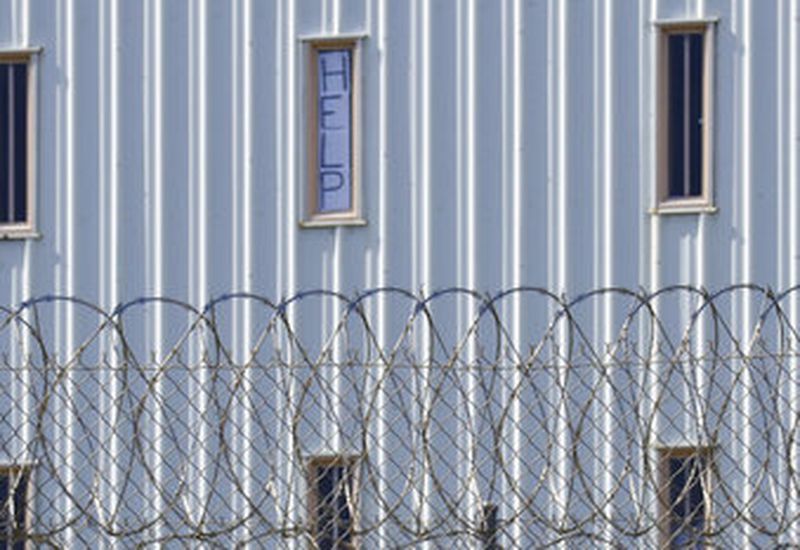Alabama Places Moratorium on State-Sanctioned Murder After Botched Execution
Thursday's called-off execution was the fourth botched execution attempt since 2018

Alabama Gov. Kay Ivey has ordered a halt to executions in the state after two failed attempts at lethal injections, calling for a “top-to-bottom” review of the process. The state called off its plans to execute a man on Thursday a few hours after the US Supreme Court allowed the execution to proceed, but prison officials determined they did not have enough time to kill the man before his death warrant expired at midnight. Ivey also asked the Alabama AG’s office to not seek additional execution dates for any other Alabama Death Row inmates until the review is complete.
It was the second time in less than two months that Alabama had brought a prisoner into its execution chamber, strapped him to a gurney and begun trying to insert intravenous lines — only to call off the execution and return him to his cell. Alan Eugene Miller was set to be executed on September 22nd, but survived after prison workers couldn’t find a vein to start the intravenous line needed for the three-drug lethal injection cocktail before the death warrant expired at midnight. Kenneth Eugene Smith who was set to die Nov. 17, experienced a similar situation and also survived after officials couldn’t start an IV.
In July, Joe Nathan James was executed three hours after he was scheduled to be executed as officials again couldn't establish an IV line to administer the lethal injection, yet journalists at the execution noted that James appeared to be unconscious before the execution process began. Again in Alabama, the 2018 execution of Doyle Lee Hamm was called off after corrections staff were unable to establish an IV line. Staff punctured Hamm at least 11 times in his limbs and groin, causing him to bleed profusely on the gurney.
That's four botched executions in four years in Alabama, again bringing to light the cruel and unusual nature of state-sanctioned executions as a method of punishment in the US Criminal Justice system, and the examples of botched executions don't end there.
Executioners in Arizona made an incision in a condemned man’s groin area earlier this year to insert a line after they were unable to access veins in his arms. Last week, prison officials in Texas had to alter their usual protocol to execute a prisoner with a disability who could not fully extend his arms, ultimately spending about 30 minutes to gain access to a vein in his neck.
Three other states have governor imposed moratoriums on executions, but like Alabama have not abolished the death penalty, according to the Death Penalty Information Center. DPIC Executive Director Robert Dunham said of the Alabama moratorium;
"Other department of corrections have demonstrated an inability to properly carry out executions, but Alabama is unique in it's level of incompetence in setting execution IV lines. Other states haven't poked and prodded prisoners for more than two hours over and over and over again. Lawyers for death row prisoners have been attempting to enforce the Constitution in those cases too. Unless and until Alabama is willing to admit the truth, look itself in the eye and undertake meaningful reforms, it should not be carrying out executions."










